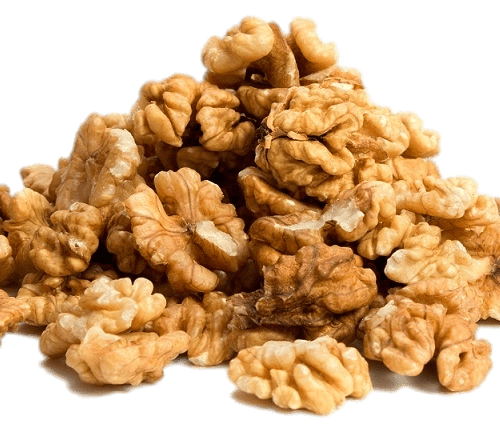Walnuts
Walnuts, with their distinct shape and rich flavor, are more than just a tasty snack – they are a powerhouse of nutrition. Packed with omega-3 fatty acids, antioxidants, vitamins, and minerals, walnuts offer a wide range of health benefits. Their omega-3 content supports heart health by reducing inflammation and improving cholesterol levels.





